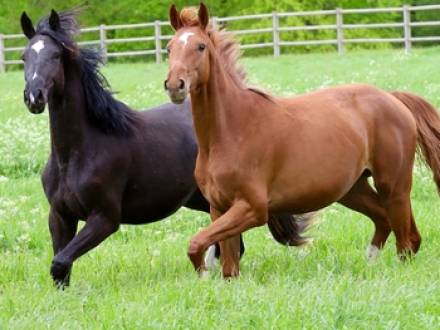Livestock or Pet? NC Chapter 7 Bankruptcy Exemptions Explained
 When farmers, breeders, or rural residents in North Carolina file for Chapter 7 bankruptcy, one of the most frequently overlooked questions concerns their animals, rather than their land or equipment. Under Section 1C-1601(a)(8), certain "animals and crops" are exempt from liquidation, but there can be an issue when the trustee labels a debtor’s goats, horses, or chickens as pets rather than livestock.
When farmers, breeders, or rural residents in North Carolina file for Chapter 7 bankruptcy, one of the most frequently overlooked questions concerns their animals, rather than their land or equipment. Under Section 1C-1601(a)(8), certain "animals and crops" are exempt from liquidation, but there can be an issue when the trustee labels a debtor’s goats, horses, or chickens as pets rather than livestock.
Recent North Carolina trustee challenges have turned this gray area into a legal battlefield, particularly for small farmers who often keep mixed-purpose animals. To better understand how courts and trustees classify animals and how you can protect legitimate agricultural assets during Chapter 7 bankruptcy, it can be beneficial to speak to a skilled Mecklenburg County, NC bankruptcy lawyer.
Why Does Classification Matter Between "Pets" and "Livestock"?
The purpose of exemptions when filing Chapter 7 bankruptcy is to protect basic necessities, as well as items that enable a debtor to maintain a living. Under the NC bankruptcy statute, debtors are allowed to keep up to $5,000 in value in "implements, professional books, or tools of the trade, including animals and crops used for the production of income." When the same animal could be viewed as both personal property and business "equipment," a problem can arise.
The statutory language states that the animal must be used for the production of income, thereby distinguishing between hobby animals and livestock. But what about a debtor’s show horse or breeding dog that may produce occasional income, but also serve as a family pet? Or, where is the "cutoff" between chickens that are bred, raised, and consistently sold for income versus a backyard hobby coop that likely costs more than the eggs produced?
For a debtor who makes money from an equine riding school business, are the horses used strictly as income producers, or are they also leisure animals or pets? Are dogs used for herding or livestock production strictly working animals, or are they also pets? Courts apply the "reasonableness" standard, without setting explicit numeric limits on animals.
What Do Courts and Trustees Consider When Making the Distinction Between Livestock and Pets?
There are several factors that trustees and courts consider when determining whether animals qualify as livestock or pets and how they will be treated under Chapter 7 bankruptcy exemptions. These include:
- Whether the debtor has Schedule F filings, farm income statements, and tax returns that support the use of the animals for income purposes.
- Physical evidence of agricultural use, like breeding logs, veterinary invoices, pens, and barns.
- The scale and the frequency of sales; occasional hobby income rarely meets "production" thresholds.
- The credibility and intent of the debtor regarding whether he or she has a genuine agricultural enterprise or has retroactively labeled pets as livestock.
Although Chapter 7 agricultural exemptions are generally fairly liberal in favor of the debtor, in the event of a challenge by the court or trustee, the burden of proof is on the debtor. Court rulings have historically sought to distinguish "tools of the trade" from "personal enjoyment property."
Avoiding Issues with Livestock Versus Pets During Chapter 7 Bankruptcy
If you think you may encounter an issue during your Chapter 7 bankruptcy filing regarding livestock exemptions, the best thing you can do is to be able to present evidence in the form of sales receipts, breeding records, and farm-use registrations. Be ready for a trustee inspection where you will demonstrate working conditions and income connection. Do not undermine your credibility by classifying personal pets as livestock. Consider Chapter 13 bankruptcy if animal sales or operations might be better handled through reorganization.
Contact a Charlotte, NC Bankruptcy Attorney
If you are considering bankruptcy and own livestock, breeding animals, or operate a small farm, a Mecklenburg County, NC Chapter 7 bankruptcy lawyer can make all the difference in whether you are allowed to keep them. Attorney Blossom assists individuals and small businesses facing financial hardship, guiding them to the best solution. Because he once owned his own barbershop, he understands the challenges of obtaining legal advice at a reasonable price for a small business. Call 704-256-7766 to schedule your initial consultation.


 704-BLOSSOM
704-BLOSSOM

